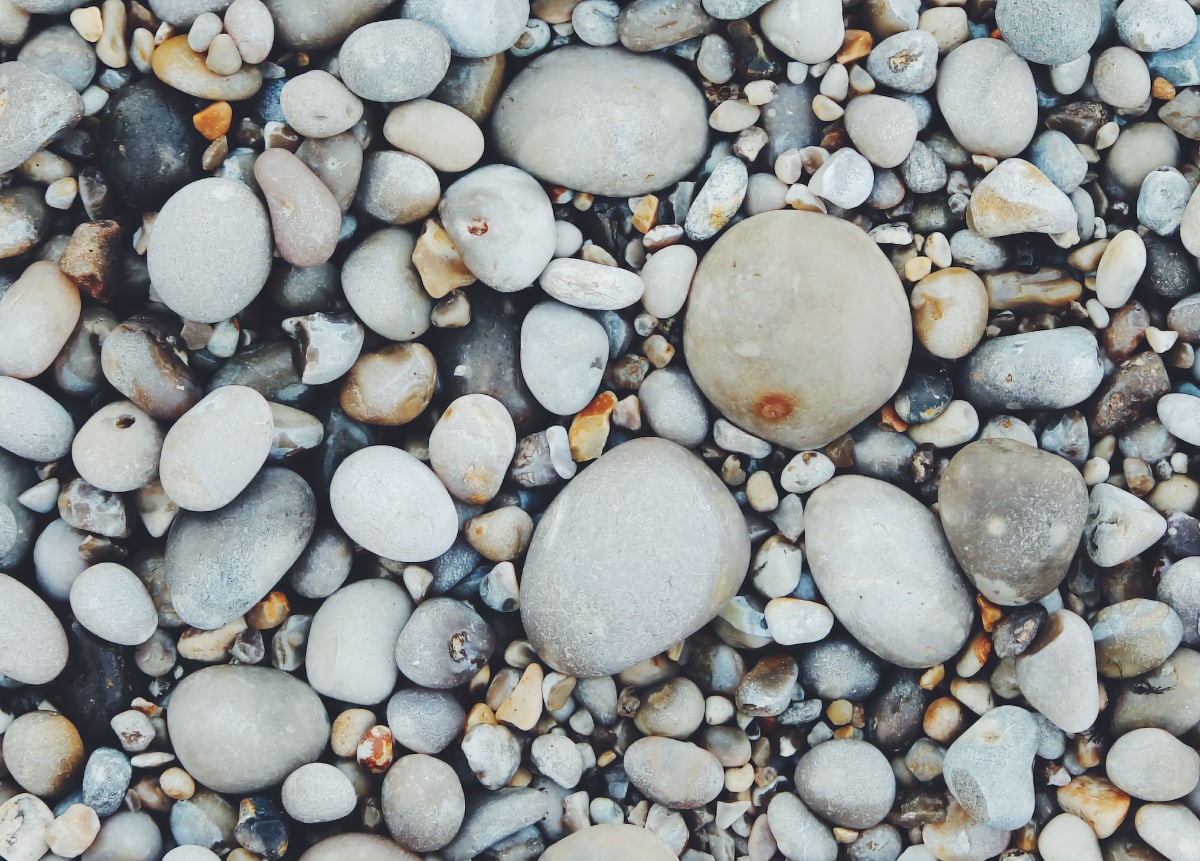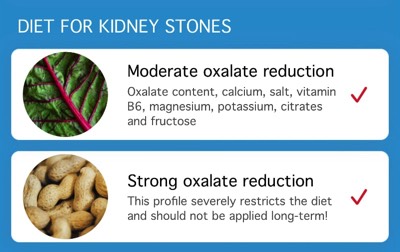What types of kidney stones are there?

Calcium oxalate stones: This type accounts for by far the largest proportion of all kidney stones found. About 70 % of all kidney stones consist of calcium oxalate, a salt of oxalic acid.
Uric acid stones (or urate stones): This type accounts for about 15 % of all kidney stone cases. Possible causes are, for example, diseases that lead to greatly increased uric acid levels (hyperuricemia).
Struvite Stones: This type of kidney stone is caused by bacterial infection in the urinary tract system. They account for about 10–15 % of cases.
Further types: There are also other types, for example calcium phosphate, cystine or xanthine stones. These are much less common and have genetic causes, for example.
Diet as a therapy for kidney stones
Our app OxiPur has special dietary profiles that help you with adjusting your diet for the two most common types of stones (see screenshots 1 & 2). Other types of stones are not supported, though.




